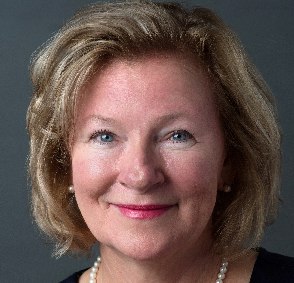The journey to diagnosis for patients, particularly those living with complex health conditions remains challenging for patients, their loved ones, and their physicians. As frontline experts on the diseases and conditions affecting their lives, patients and family caregivers have many meaningful insights.
Earlier this year, Rare Patient Voice LLC, a patient recruitment firm, and MediFind, a digital health platform, published a report examining the state of the diagnostic odyssey for patients with complex diseases. “The Long and Winding Road to Care: Today’s Journey to Diagnosis and Treatment for Patients Living with Complex Diseases, including Rare Diseases’‘ is based on a late 2021 survey of over 1,200 patients living with a wide range of complex diseases and conditions. All of the respondents are members of the Rare Patient Voice community in the United States.
The report reveals progress towards overall improvements in the patient journey being made, but unevenly, across disease types and other demographics. On average, patients report seeing four different doctors before getting correctly diagnosed. This number jumps to almost six different doctors when the patient has a rare disease. One of the key takeaway areas from the report pertains to how patients find specialists for their disease.
While general health consumers prioritize insurance coverage as the most important factor when choosing a doctor, both physicians and those living with complex disease (that is, a serious, life-threatening, or rare disease) overwhelmingly prioritize clinical expertise in their conditions. For these patients, insurance coverage, appointment availability, location, provider ratings and reviews, and even reputation of the health system are not near the top of the list. Unfortunately, patients, and doctors, in many cases, have no clear way of judging clinical expertise.
For patients, the recommendation of their primary care physician is key in selecting a specialist. Primary care physicians base their recommendation to specialists on perceived clinical expertise. However, there is no clear methodology for how clinical expertise is judged.
How does clinical expertise drive specialist choice?
○ 55% of rare disease patients say clinical expertise is the most important factor when choosing their doctor, as opposed to 47% of complex disease patients
○ 88% of primary care doctors say medical skill is of great importance when selecting to whom they will refer patients, although how doctors practically evaluate such skill remains unclear
○ Factors such as location, quality of online ratings and reviews, and even health system reputation trail markedly in terms of importance when choosing a provider
Provider referrals still rule in terms of finding a skilled specialist, regardless of disease category. Patients find their doctor through multiple paths, but nearly half of patients found the doctor who correctly diagnosed them through a referral from another doctor, while 20% of patients did so through their own research. Both figures remain stable over time, as patients implicitly trust the long-standing referral process.
When we look specifically at patients living with a rare condition, physician referral is still the number one way that patients find their doctor. However, there is also a large jump in the percentage who find their doctor through their own research (going from 18% for non-rare patients to 24% for rare patients), indicating some potential dissatisfaction with the referral process.
The fact that referral is still the dominant way that patients find doctors may not be surprising. In fact, both doctors and patients report medical/clinical expertise as the most important factor in choosing a physician. In the case of doctors, they’re choosing the specialist to whom to refer patients. While “Dr. Google” is a common source for information gathering, when it comes to specialized care, patients want referrals from a trusted resource. They also need to know that the specialist is someone who can genuinely help. Working together, patients and physicians can find the right specialists for their indication.
Pam Cusick, a research professional with more than 30 years’ expertise in study design, implementation, and analysis, is Senior Vice President at Rare Patient Voice. Her background in public health communications and research, coupled with her passion for patient advocacy, dovetail with Rare Patient Voice’s mission to empower patients and caregivers to share their voices with researchers and companies developing products, devices, and treatments to improve lives. Pam earned a BA in Psychology from Sweet Briar College and a MA in Psychology from the New School for Social Research. She is Past-President of the Board of Directors and Scientific Advisory Council Lead for the Horses and Humans Research Foundation.
Not a member of the Society? Please consider joining here: https://participatorymedicine.org/memberships/







As a primary care clinician, I routinely suggested to my patients that we have a follow-up visit shortly after their consultative visit with the (limited-scope) specialist. (That’s a generalist joke.) Initially this was aimed at learning what had happened quickly rather than waiting for the slow and unreliable sharing of records.
Over time, however, it became clear that it also allowed me to get timely and invaluable information about the quality and usefulness of the specialist’s consultation. That helped me over time pick the right consultants, avoid some consultants, adjust the way I made a referral to better focus and inform the consultant, and sometimes intervene when the process looked like it might go off the rails.
This was something I stressed when teaching family practice residents.
Thanks Peter! Sounds like a great strategy to target the best specialists for your patients!
I should add that a handful of consultants changed their approach in response to my feedback and clear but polite suggestion that future referrals were at stake.
Seems like wise decisions on their parts!